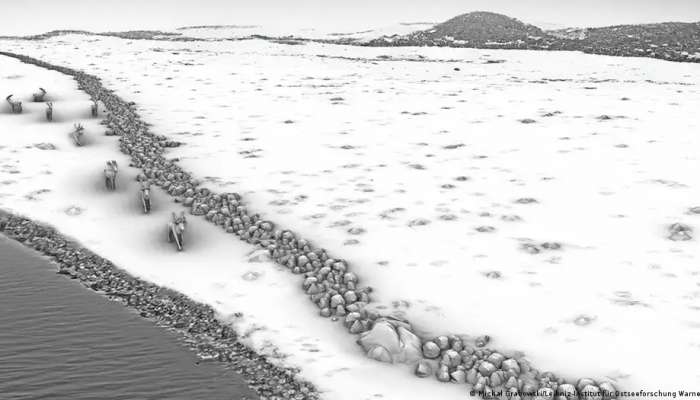
Frankfurt: Researchers have discovered an almost 1 kilometer-long (0.6 miles) stone wall off the German coast in the Baltic Sea that may be more than 10,000 years old.
The wall, which researchers first became aware of in 2021, may prove to be the oldest man-made structure to ever be discovered in the Baltic Sea region.
The discovery was announced on Monday evening by the Leibniz Institute for Baltic Sea Research Warnemünde (IOW), the University of Rostock and the Christian-Albrechts University in Kiel.
The structure lies around 10 kilometers from the coast of the eastern German state of Mecklenburg-Western Pomerania, at a depth of 21 meters.
It consists of almost 1,700 tennis- and football-sized stones mostly under a meter in height.
The area was flooded some 8,500 years ago, but before that it would have been dry land. Researchers have theorized that the wall was built to trap reindeer that they were hunting.
The wall could not be directly dated, but the researchers pointed out that the region was covered in forest from around 9,800 years ago, meaning that there would have been fewer reindeer and such a structure would have made less sense at that time.
Similar constructions have been found by archaeologists in Lake Michigan in the US which were used for the hunting of caribou.